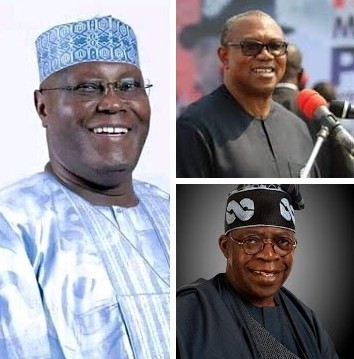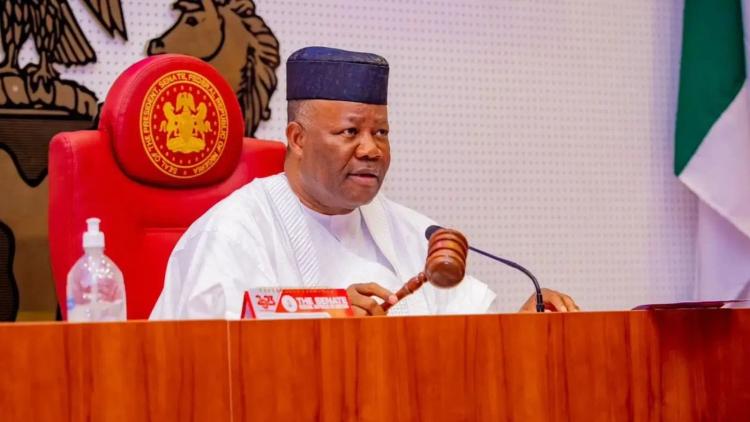The task before the incoming President of Nigeria is twofold: providing astute leadership and resetting the nation’s unworkable structure. In order words, the trouble confronting Nigeria today is reducible to just two factors: poor and parochial leadership, and dysfunctional structure. Both have left the country as a mere geographical expression. And as former president Chief Olusegun Obasanjo recently averred, Nigeria is still a country and not yet a nation.
Since everything rises and falls on leadership, it will be right to assume that it would take a true leader to reset Nigeria and commence the transition of the country to nationhood. It is also crucial to state that unity and development are not possible for any nation that has not resolved the questions of nationhood.
Citizens need to know that one of the main reasons corruption, terrorism and underdevelopment are rife in our clime is that Nigeria is not yet a nation in the real sense of the word, the reason there is no commitment to uniting and growing her. The resources meant for development are easily diverted to personal and sectional use and those excluded, simply resort to kidnapping, insurgency, terrorism and other forms of criminality to force their way to collect from those they believed have marginalised them. Social psychologists believe that in every crime, society has a hand in it since criminals are not necessarily born but produced by their environments through acts of omission and commission.
The moment of truth is upon Nigerians once again. The clamour of the 2023 Presidential election is growing stronger by the day and will soon reach a crescendo. It reminds many of the 1992 Presidential Election between the defunct National Republican Convention, NRC and its presidential candidate Bashir Tofa and the Social Democratic Party, SDP and its presidential candidate MKO Abiola. There were so many expectations in the air then, which were all dashed when the gap-toothed military president Ibrahim Babangida, decided to annul the election that had all the trappings of the best election ever in Nigeria.
The scenario is hopefully different. The 2023 Presidential Election, though will be intense as that of 1992, will produce President Muhammadu Buhari’s successor and unless something funny and dramatic happens, most likely be one of the three leading candidates. In order words, the next president of Nigeria barring all odds shall be either Atiku Abubakar of the Peoples Democratic Party, PDP, Peter Obi of the Labour Party, LP, or Bola Ahmed Tinubu of the ruling All Progressives Congress, APC.
The APC has rather unsuccessfully grappled with the nation’s economic, social and political challenges and has made the nation’s condition much worse than the party met it in 2015, a major factor that is de-marketing the party and diminishing its chances of retaining power at the centre. This is also why its candidate Bola Tinubu is relying on his claimed performance as Lagos state governor for 15 years. Though Tinubu’s claim to sterling performance as governor is rather contentious when compared with his successors, Fashola and Ambode who posted much more impressive performance records, Tinubu still clings to Lagos rather than flaunt the abysmal performance of his party under Buhari.
Nigeria is in a peculiar mess essentially for two reasons, namely, leadership and the unworkable structure. The carrying capacities of the leading presidential candidates will be taken up in a different article. The present treatise is looking at the real challenges facing Nigeria and how the leading candidates are positioned to take on them.
Yes, everything rises and falls on leadership, and it will take an exceptional leader to reset the country. To begin, Nigeria’s federation is skewed right from independence. This contrived imbalance was however fairly contained by the true federalism practised in the first republic. It allowed the four Regions to take care of their growth and development. However, the military incursion into the nation’s governance space transformed the country from a thriving federal system to a unitary system, with all the powers meant for the development of the federating units tied in the Exclusive List of the unitary 1999 constitution. Unlike what obtains in functional federal systems, Power, Security, Railways, Ports, LG and State Assembly autonomy, Solid Minerals and so on are all on the Exclusive List reserved for the federal government of Nigeria. This has turned the country into a unitary system in a federal environment with over 250 ethnic nationalities bunched together by sheer force. The fact is: Nigeria is federal only in name.
The claim that the power sector has been privatised is also a ruse since the federal government is still holding 100% of Transmission, one of the three components of power, and 40% of Generation, the other component. In a federal system, federating units generate their electricity and distribute it, and this is not permitted in Nigeria.
On Security, of all 26 counties of the world practising federalism, only Nigeria runs a centralised police system. No surprise that security has failed woefully in Nigeria, with terrorists and bandits running amok and operating freely and attacking even the federal capital territory.
The point being stressed here is that none of the three leading candidates can resolve the nation’s dire condition unless he is ready to take on resetting the nation’s structure from unitary back to federalism as the number one priority. And doing so will take quite a lot. It will take deep negotiations and statesmanship. There has to be an immediate revisiting of Goodluck Jonathan’s 2014 Confab report which has over 600 prescriptions, and the El Rufai committee report of restructuring, which also has several overarching recommendations, for the resetting of the Nigerian nation-state.
Since resetting Nigeria should be the first task for the incoming president if he will succeed, it is important to weigh who among the three can push it through to set the stage for unity, economic recovery and development.
One has carefully followed the positions being canvassed by the three major candidates to see which is positioned and committed to the restoration of federalism. APC’s candidate has never said anything in that direction. Tinubu has rather harped on continuing from where President Muhammadu Buhari stops, and Buhari has resisted all attempts to move Nigeria away from its present unitary structure to federalism. Apart from archiving Jonathan’s Confab report, Buhari has also rejected the El Rufai committee report on restructuring. Tinubu say Emilokan and promising to continue from where Buhari stops simply means there will not be such deep and radical constitutional change under his watch as President.
Peter Obi has made some statements signifying his inclination to restoration to federalism through devolution of power. However, like Tinubu, Obi has avoided the word restructuring like a plague, ostensibly not to alarm regions of the country benefiting from the present skewed unitary structure, even though it has crippled the country.
Atiku Abubakar has been bolder and more audacious in putting forward the need to deliberately move the country back to federalism, even unafraid to use the word restructuring. Restructuring Nigeria means renegotiating and rebasing the nation completely.
The route to it in a democracy is through the legislature and grand constitutional amendment. It is a tortuous path because amending any clause in the 1999 constitution would require 2/3rds of both arms of the national assembly and a minimum of 24 state assemblies to concur. In both considerations and going by how the country is reconfigured by both the colonial masters and variegated military regimes, the North holds the key and can make or mar it.
Who then among the three can gain the confidence and understanding of the North to vote in favour and restore the country to federalism, move the country to nationhood, and restore unity, growth and development?
• Dr Law Mefor, a Forensic/Social Psychologist, is a Fellow of The Abuja School of Social and Political Thought and can be reached via Tel.+234- 913-033-5723; Twitter: @DrLawMefor; email: drlawmefor@gmail.com.





